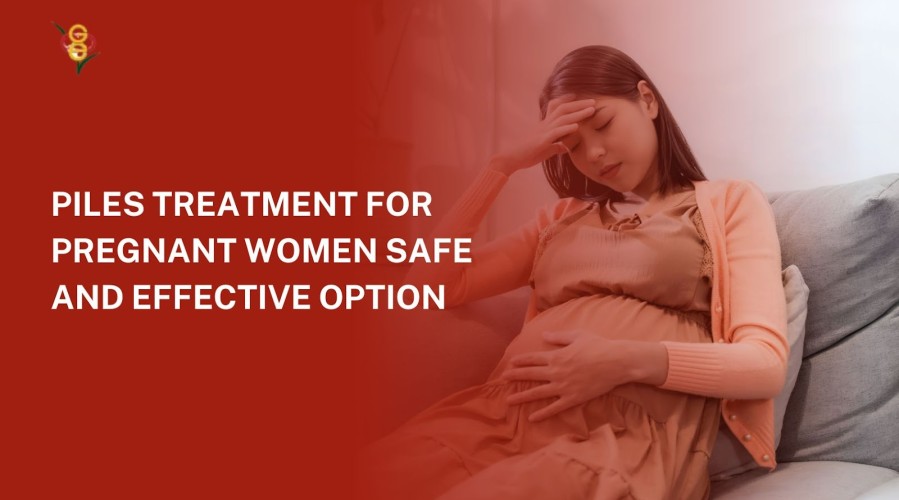Learn what gallstones are, their common symptoms, causes, and treatment options. Discover when to seek medical care and how to manage gallstone complications effectively.
Piles Treatment for Pregnant Women: Safe and Effective Options

Hemorrhoids, also known as piles, are a problem for a large number of pregnant women. These swollen veins around the rectum can be painful, itchy, and uncomfortable. Treatment during pregnancy must be a little sensitive since it is not right to expose the life of both the mother and the unborn child to any form of danger. If you are searching for effective Piles treatment in Coimbatore, Gem Hospital offers specialized care for pregnant women to manage this condition safely. In this blog, we will discuss the safe and effective piles treatment options that can be followed by pregnant women to control the condition effectively.
Why Are Pregnant Women More Vulnerable to Piles?
During pregnancy, the body goes through several changes, many of which can contribute to the development of piles:
- Hormonal Changes: Progesterone, a hormone that rises in pregnancy, can reduce the tone of the blood-vessel walls and make the vessels more likely to swell.
- Increased Pressure: During pregnancy, the uterus exerts pressure on the pelvic veins and this may cause piles when the baby starts to grow.
- Constipation: Hormonal changes can also affect the digestion process hence causing constipation. Constipation and the attempt to pass a stool can actually make piles worse.
Symptoms of Piles in Pregnancy
The most common symptoms of piles include:
- Skin rash that mainly develops around the anus or the genital area.
- Pain in the rectum before, during or after a bowel movement.
- They include swelling or lumps around the anus.
- Bleeding which is manifested by bright red blood in the toilet bowl or in the feces.
These symptoms may be uncomfortable but most of the time they are not severe and can be relieved through the right treatment.
Safe Treatment Options for Piles During Pregnancy
1. Dietary Changes
Diet is very important in the management of piles, and this means that one should take a balanced diet. Intake of more foods rich in fibre also prevents constipation, which is an aggravating factor in piles. Include plenty of:
- Apple, pear, lettuce and other greens and vegetables.
- Complex carbohydrates including oat, brown rice and whole grain wheat.
- Beans and lentils which are categorized under legumes.
It also reduces incidences of dehydration and constipation since it is recommended that one should take at least eight glasses of water daily.
2. Topical Treatments
There are many creams and ointments that can be bought over the counter for the management of Piles Treatment. Such treatments can help to minimize inflammation, alleviate inflammation and relieve pain. But, it is always advisable to talk to the doctor first before applying any creams since some of them may be dangerous to the unborn child.
Other natural treatments that may be used to treat the affected area include witch hazel and aloe vera to help reduce itching and inflammation. Most of these natural remedies are harmless, but it is always advisable to consult your physician.
3. Warm Sitz Baths
Soaking in warm water for about 10-15 minutes has an effect of reducing swelling and relieving pain. This is a very basic but efficient treatment that has a quick positive effect on the area, helps muscles to relax and stimulates healing.
4. Regular Exercise
Aimless walking or swimming or any other mild exercise should be taken on a daily basis to aid circulation and thus prevent constipation. Some of the activities that should be taken include; performing pelvic floor exercises that is also referred to as Kegel exercises helps in pulling up the muscles in the pelvic area hence reducing pressure on the veins.
5. Use of Over-the-Counter Medication (with caution)
There are creams and suppositories that can be bought without prescription to cure piles. But it is always recommended to consult your doctor for you may be at risk, some products may be dangerous to be taken when pregnant.
When Should You See a Doctor?
In case of severe pain from Piles Treatment, in case of massive bleeding or if the condition does not respond to home remedies, one should seek medical attention. In some cases, additional treatment may be required, including medical treatments that can be done during pregnancy.
Preventing Piles During Pregnancy
While some factors are beyond your control, there are several things you can do to prevent piles from developing during pregnancy:
- It is important not to sit or stand for long to prevent pressure to the pelvic veins.
- Avoid forcing yourself when you are defecating. If constipation is a problem, then you should try a stool softener that has been prescribed by your physician.
- Keep your weight under control and attempt to gain weight within the healthy range during pregnancy.
Piles are very normal but can be easily treated during pregnancy. Dietary changes, safe topical treatments, and exercise can help you find comfort and still have a comfortable pregnancy. In case you are having piles and require professional consultation or treatment, then Gem Hospital is a place to be. Make your appointment today and start your journey to a better pregnancy with less discomfort.
Blogs & Article
Learn about bloating and gas problems, including common causes, symptoms, and effective solutions to improve digestion, reduce discomfort, and maintain gut health.
Learn how unverified Ayurveda treatments may cause liver damage, understand the risks, symptoms, and why medical guidance is essential for safe care.


